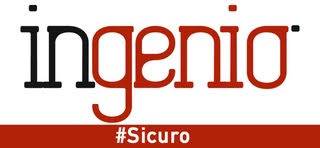Award sends ASU grad student to Japan for earthquake study
By: https://asunews.asu.edu
Due to its proximity to the major tectonic plate boundaries of the Pacific Ring of Fire, Japan has had a long history of earthquakes and seismic activity. As a recipient of a National Science Foundation (NSF) East Asia and Pacific Summer Institutes (EAPSI) Fellowship, ASU geological sciences graduate student Emily Kleber is spending her summer assessing seismic risk in Japan, focusing on the Itoigawa Shizuoka Tectonic Line. Her research begins June 17 at the University of Hiroshima (Japan) under Dr. Koji Okumura.
The two-month-long program provides students in science, engineering and education first-hand research experience working with a host scientist in Australia, China, Japan, Korea, New Zealand, Singapore or Taiwan.
Trained as a geologist and a geographic information systems specialist, Kleber has a bachelor of science in geology, with a minor in geographic information systems from University of California, Davis. She has worked extensively with light detection and ranging (lidar) data, which uses light to measure variable distances to the Earth and create precise, three-dimensional models of the surface. As part of Professor Ramon Arrowsmith’s Active Tectonics group at ASU, she has gained experience applying high resolution topographic data to studying earthquake geology.
“Being an EAPSI fellow is a once in a lifetime experience. I will be studying the tectonics of a completely different setting and interacting with scientists in a different research infrastructure,” says Kleber. “I will share my experiences studying the San Andreas Fault in California, and perform my own short-term seismic hazard study to better understand how earthquake science is used in Japan to inform policy decisions.”
Kleber benefited from pre-existing collaborations between the Active Tectonics group and Japanese institutions and scientists. Arrowsmith’s group has hosted international researchers, including the most recent visitor, Tadashi Maruyama of the Geological Survey of Japan.
“There are strong research ties between the Active Tectonics group at ASU, the Southern California Earthquake Center’s Virtual Institute for the Study of Earthquake Systems and several research institutions in Japan. I applied to this fellowship in order to continue building these connections and seek a unique research experience in a tectonically and culturally significant area for earthquake geology,” says Kleber.
During her weeks abroad, Kleber will be organizing and leading a short course at the Geological Survey of Japan in applying high resolution topographic data to active tectonics studies. She will also visit the Geological Survey of Japan in Tsukuba, which is an area outside of Tokyo, and will be traveling to the North Island of Hokkaido to attend the Asia Oceania Geosciences Society’s meeting.
In addition to her research, Kleber is also heavily involved in the daily operations of an NSF-funded high resolution topographic data distribution portal called OpenTopography, which makes earth science-related lidar data available for free online. Someday, she would like to be part of seismic hazard assessment teams to help better inform public activities surrounding earthquakes.
The NSF East Asia and Pacific Summer Institutes program provides U.S. graduate students in science and engineering a first-hand research experience in their respective location. The goals of the program are to introduce students to East Asia and Pacific science and engineering in the context of a research setting, and to help students initiate scientific relationships that will better enable future collaboration with foreign counterparts.
Arrowsmith, her adviser, is excited about Kleber’s opportunity. “I am happy that Emily will be able to have this great educational experience working with our close Japanese colleagues to develop new methods using high resolution topography to map active faults,” he remarked. “It is a competitive program, and an honor for her to receive this prestigious award. It is a nice indication of her hard-working and motivated nature.”
Nikki Cassis, ncassis@asu.edu
602-710-7169
School of Earth and Space Exploration
